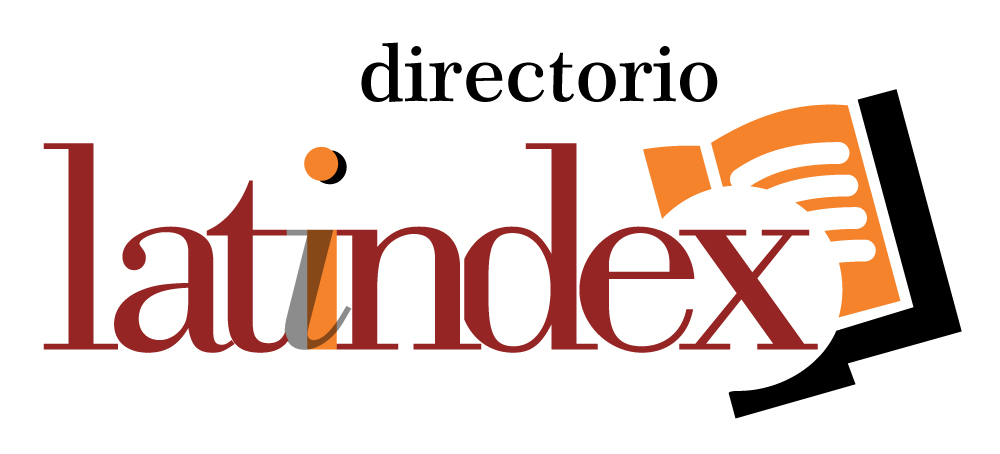Archives
-
Antropologia e seus campos
Vol. 6 (2025) -
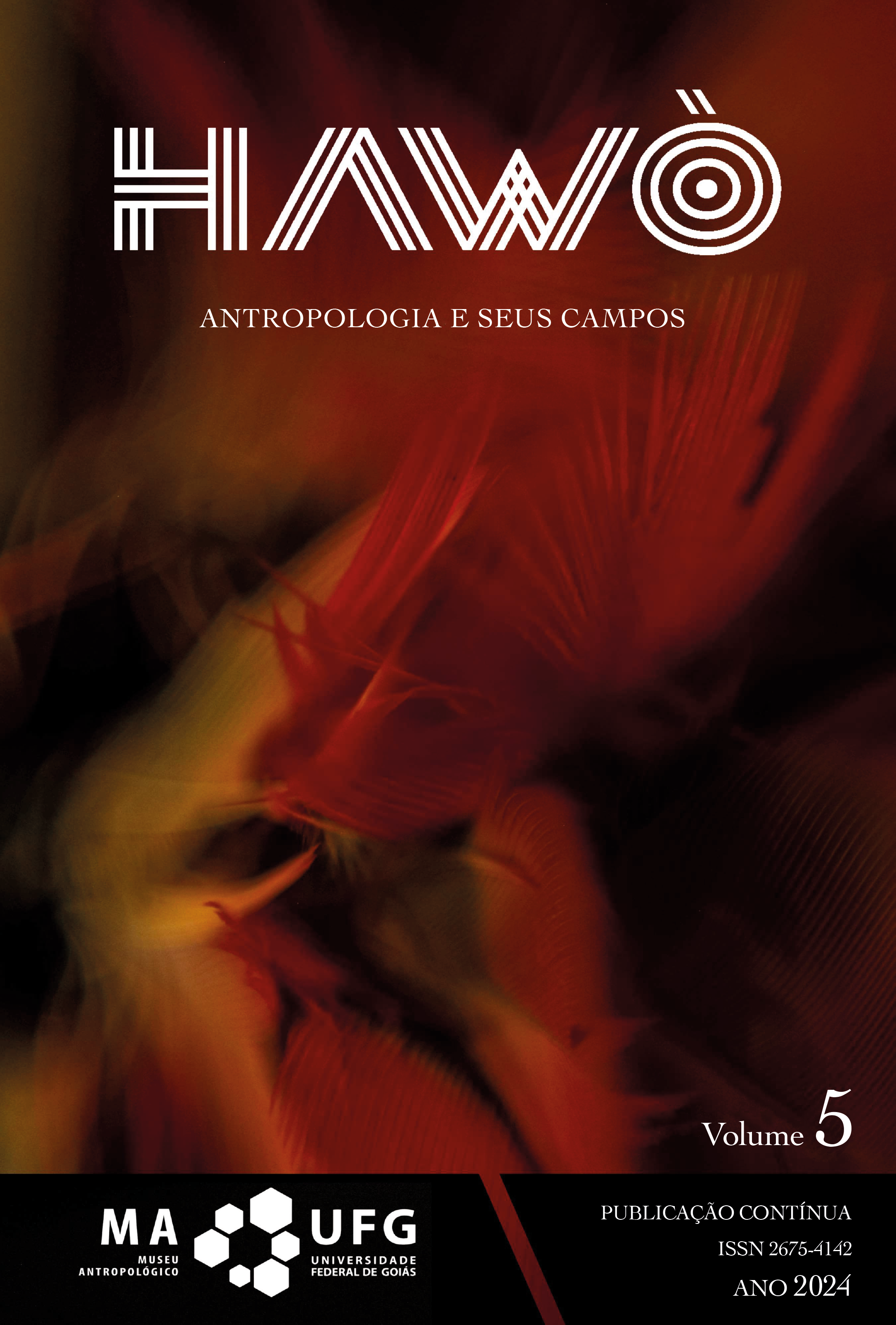
Antropologia e seus campos
Vol. 5 (2024)Imagem da capa: Plumária
Fonte: Museu Antropológico da UFG
Publicação contínua
ISSN: 2675-4142
-
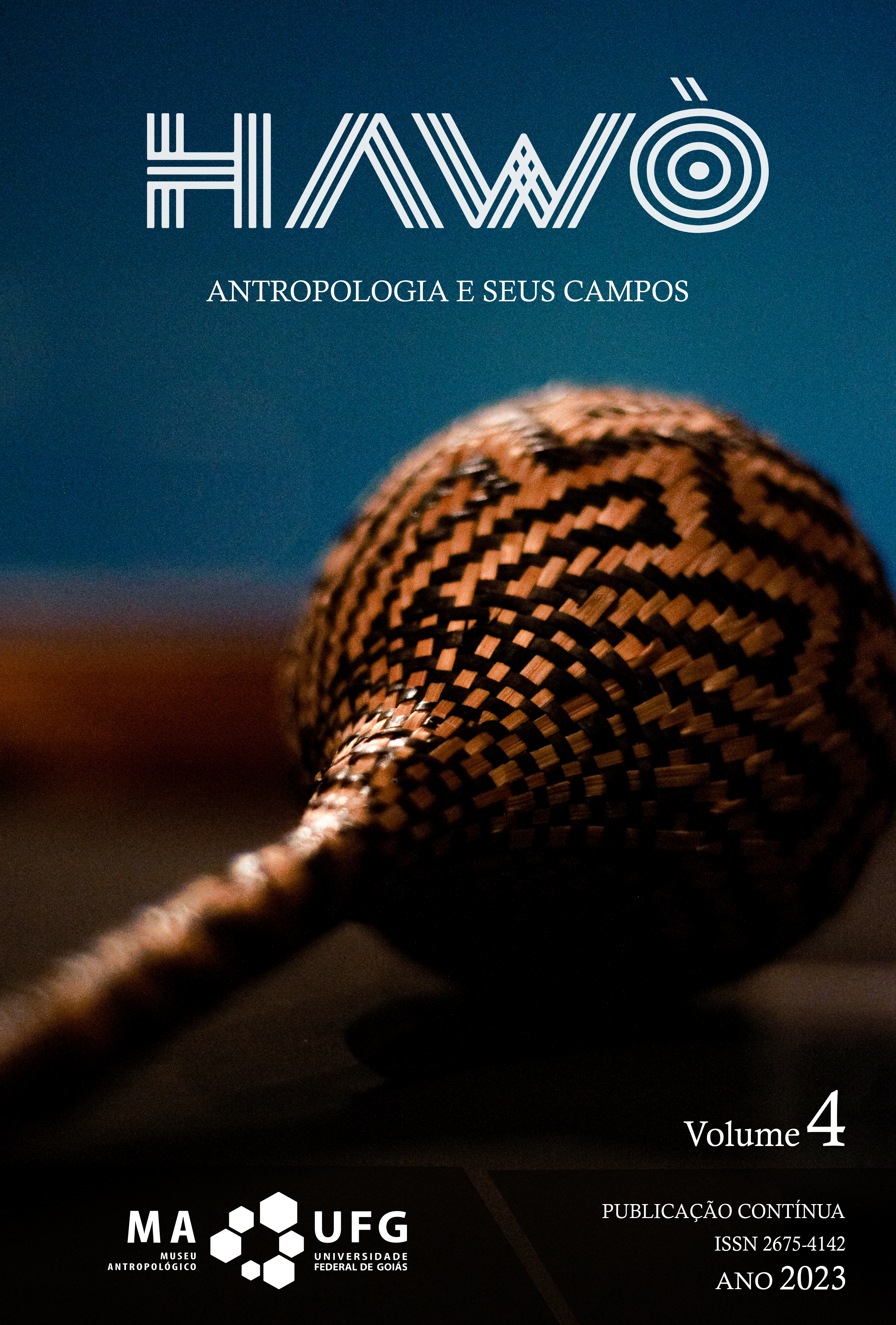
Antropologia e seus campos
Vol. 4 (2023)Imagem da capa: Maracá
Fonte: Museu Antropológico da UFG
Publicação contínua
ISSN: 2675-4142
-
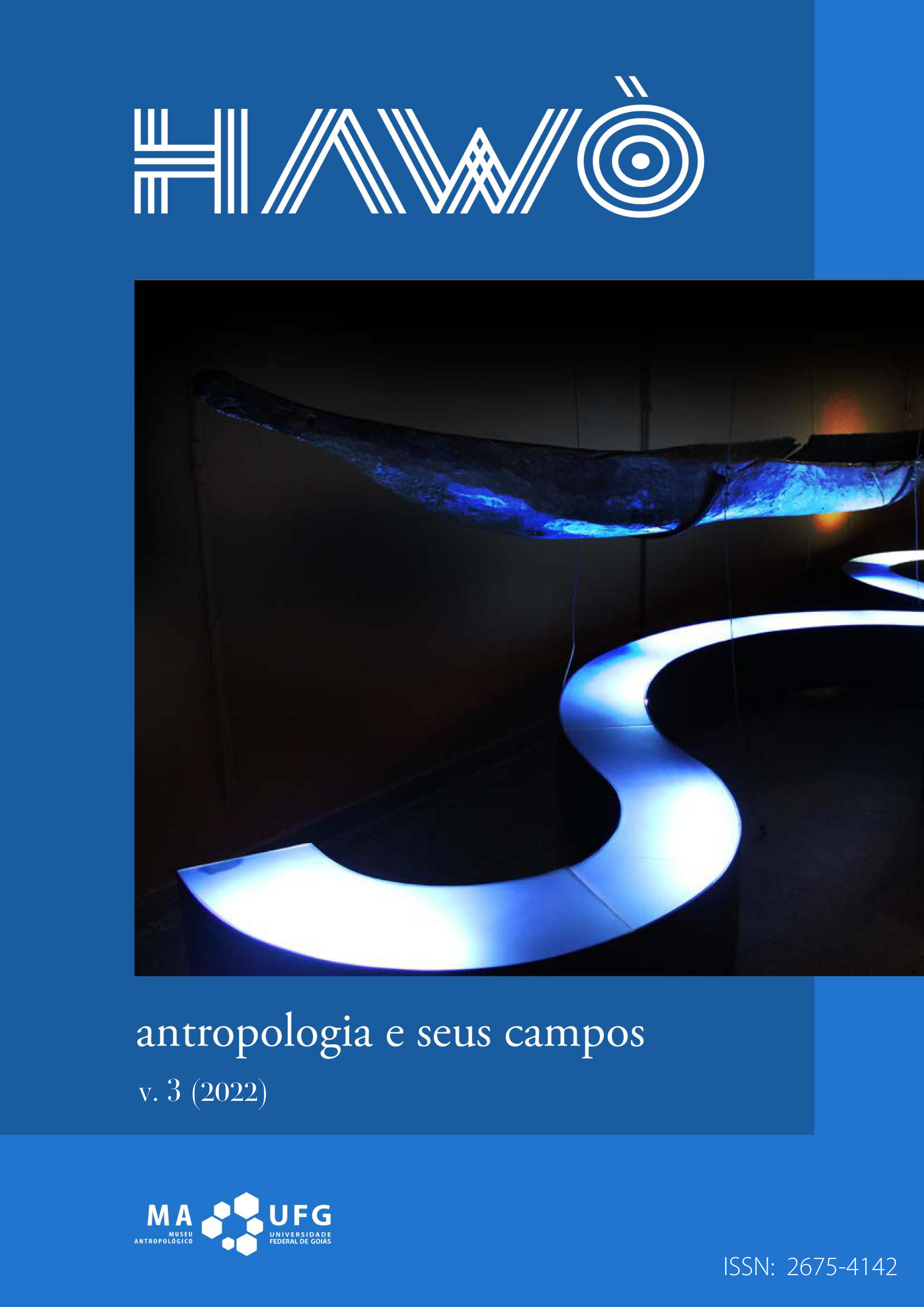
"Ritxoko is gold!"
Vol. 3 (2022)In this issue, Revista Hawò publishes the results achieved so far by Karajá Presence project: material culture, weaves and colonial transits', reviewing four years of work, since its start. Throughout this time the project mapped collections of ritxoko, known as 'Karajá dolls', in seventy-seven Brazilian and foreign museums, at the same time that it sought to rebuild the paths that resulted in these collections, the networks of relationships formed among researchers, institutions and Karajá indigenous groups and the women who make these dolls, originally a children's toy. Moreover, it studied these artefacts focusing on body adornments and costumes used to 'dress' these dolls. As it is an interdisciplinary project that encompasses the fields of Anthropology, Museology, Archaeology, among others, we are interested in receiving articles and research results, carried out in different parts of the world, in which the interfaces of these fields can get into the discussion. Especially welcome works that, in perspective mentioned above, are committed to indigenous cultures and the understanding of their insertion in contemporary times, especially in museological and cultural heritage circuits.
With this publication, we intend to foster and expand the debate on the forms and impacts that the return or sharing of ethnographic collections with indigenous peoples bring to the different actors involved in processes of selection, acquisition, documentation, conservation, education, exhibition and interpretation of these collections safeguarded in museums. The title "Ritxoko is gold!" takes up a phrase by Mahuederu, master ceramicist, using, in her speech, the symbolic and economic values linked to her craft-work. For this issue, we are also interested in papers discussing the themes mentioned above, which involve other circulations of ritxoko, not only linked to its institutional preservation but also commercial circuits and tourism sector. Last but not least, we intend, at the confluence of these researches, to contribute to the discussion of the pedagogical potential these collections studies bring to the field of museum education and teachers' training at all levels of education. Perhaps indigenous teachers can present their texts!
-
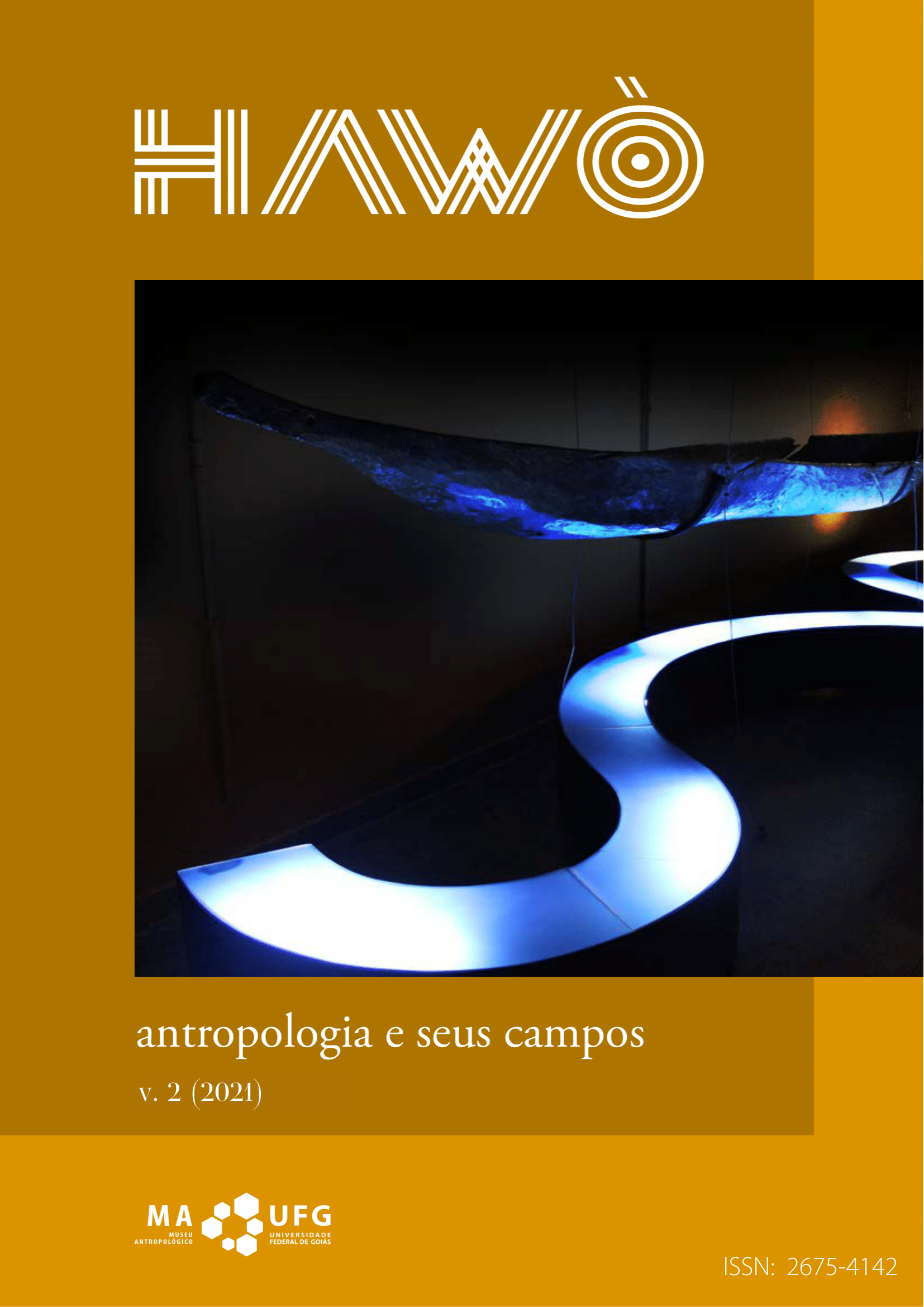 Vol. 2 (2021)
Vol. 2 (2021)This dossier seeks to contribute to the debate about the social role of archaeological museums and collections from an anthropological perspective. In recent years, anthropological museums have been implementing changes in museum practices which are more in tune with agendas of decolonialization, looking to reach out to communities who are related to their collections, especially indigenous peoples. This is seen as an opportunity to add new meanings to collections and enable multivocal narratives, in addition to the traditional scientific and academic discourses at museums.
Archaeology museums, as well as archaeological practices in a broader sense, face particular challenges to advance in this direction, given their holding of what is often the material testimonies of longstanding histories that affect the present and future of different social groups and localities. These challenges are due to both the practices of archaeological research and collection, and the institutional conceptions about what constitutes an archeology museum, collection, and archaeological research itself. Challenges also arise in the scope of collection practices and the reframing of the meaning of collections by individuals, social groups, or communities with very promising experiential potential, but which demand changes in the legal and institutional contexts.
-
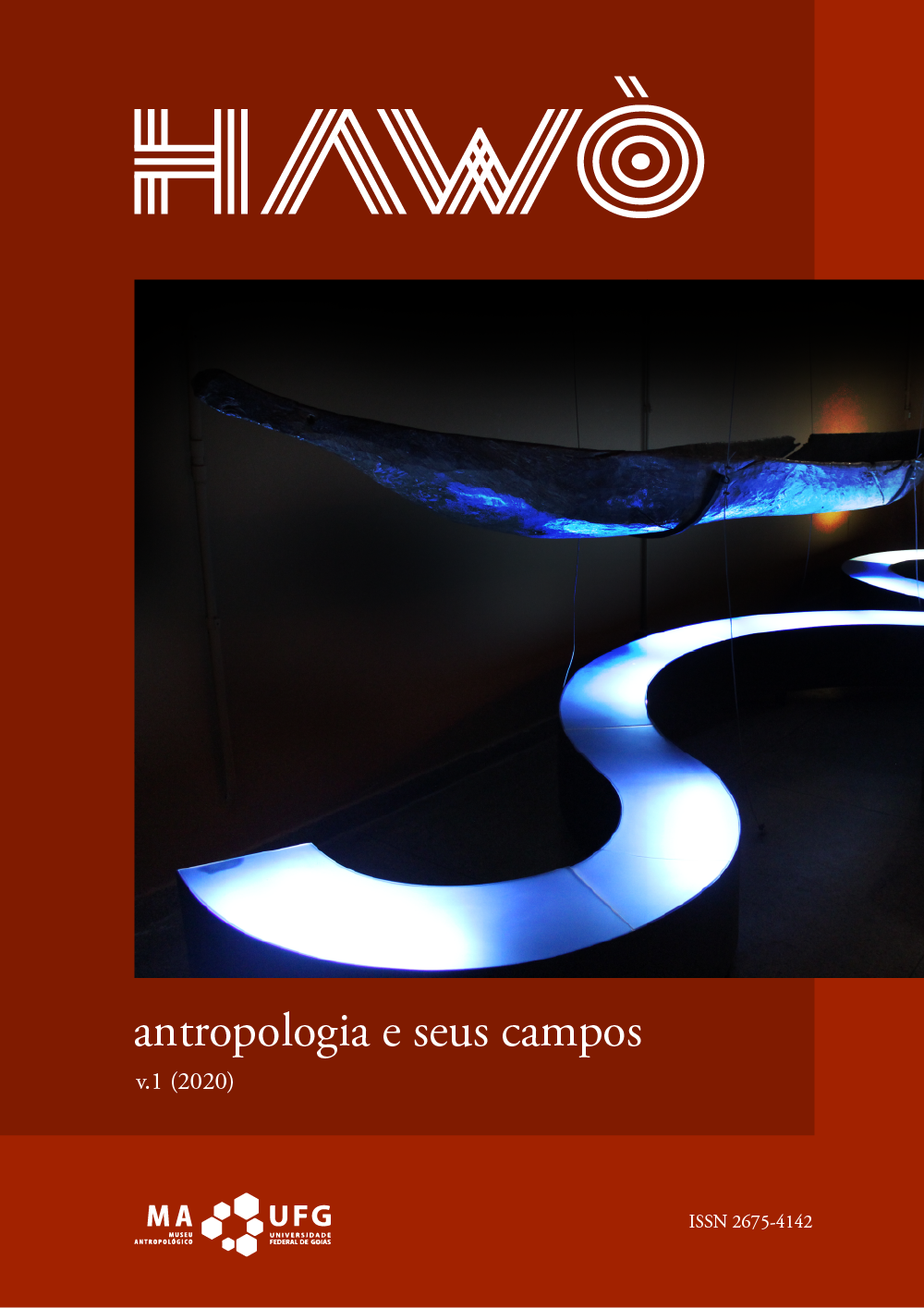
Anthropology and fields
Vol. 1 (2020)Imagem da capa: Canoa Iny-Karajá
Fonte: Museu Antropológico da UFG
Publicação semestral
ISSN: 2675-4142




